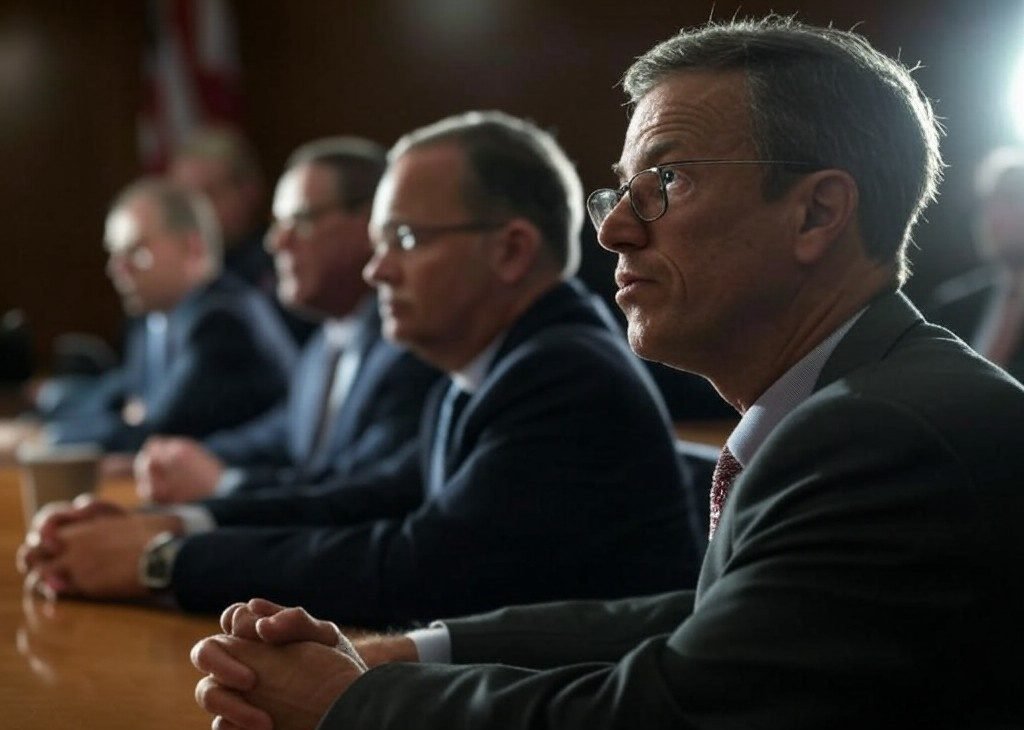The Complexities of Cannabis Banking: Navigating State and Federal Regulations
The financial services access problem faced by the cannabis industry has become a significant issue in U.S. policy debates. As a Senate committee prepares to address the matter next week, a recent report from the Congressional Research Service (CRS) sheds light on the interplay between state and federal laws regarding cannabis banking—highlighting a complex web of regulatory challenges that many businesses in the industry encounter.
The State-Federal Conflict: A Barrier to Banking Services
The CRS report outlines why banks might terminate accounts, particularly when they suspect illegal activities. For companies operating in states that have legalized marijuana, this concern is heightened by the fact that cannabis remains illegal at the federal level. The report states, “Although most banks are state-chartered, every federally insured bank has a primary federal regulator, and generally these regulators expect banks to avoid banking with clients that violate federal law.” This creates a precarious situation for banks that might otherwise be willing to serve clients legally operating under state law.
CRS elaborates, “Cannabis is legal in several states but is banned at the federal level. Thus, a bank chartered in a cannabis-legal state may be in a position to provide banking services to a company operating legally under state law, but it could potentially violate federal law.” This conflict often leads banks to avoid doing business with cannabis companies altogether, as they seek to mitigate any potential legal risks.
Why Banks Are Reluctant to Serve the Cannabis Industry
The reluctance of banks to engage with the cannabis sector is deeply rooted in the regulatory framework. Many banks fear that providing services to cannabis-related businesses could expose them to legal repercussions, despite state laws permitting such activities. This is particularly true for federally insured banks, which must comply with federal banking regulations. The CRS report emphasizes that “cannabis banking sits at the nexus of this issue, where state-chartered banks are in position to provide banking services to companies that operate legally under state law but illegally at the federal level.”
The conflict for federal banking regulators is twofold: they must avoid endorsing federally illicit activity while also respecting state commerce. “Further, some regulators have issued enforcement actions related to cannabis banking,” the report states, underscoring the challenges financial institutions face in this arena.
Legislative Efforts: The SAFE Banking Act
In light of these complexities, Congress has attempted to find a solution through the Secure and Fair Enforcement (SAFE) Banking Act. This bipartisan legislation aims to protect financial institutions from regulatory penalties for working with the cannabis industry. The Senate Banking Committee passed a version of the SAFE Banking Act in September 2023, under Democratic control, and stakeholders are hopeful that it will be revisited when the committee addresses debanking issues.
Despite these legislative efforts, industry advocates face uncertainty. Banking Committee Chairman Tim Scott (R-SC) has expressed opposition to the SAFE Banking Act and emphasized that upcoming hearings will focus solely on “legal” enterprises. As industry workers share their experiences of losing bank accounts due to their association with cannabis, the question remains whether these testimonies will compel action from the committee.
Future Prospects and Challenges for Cannabis Banking
While there is optimism regarding the potential reintroduction of the SAFE Banking Act, a spokesperson for the GOP House sponsor of the previous version indicated that its introduction “is not imminent.” This leaves many wondering what the future holds for cannabis banking access, especially with Republicans controlling both the House and Senate, where leadership has historically resisted cannabis reform, including banking legislation.
Some advocates maintain hope for progress, especially in light of former President Donald Trump’s recent endorsement of the proposal during his campaign. The Government Accountability Office (GAO) has also begun convening focus groups of cannabis businesses to better understand their banking experiences, signaling a potential shift in the conversation surrounding cannabis banking access.
However, the cannabis industry remains frustrated with the slow pace of reform. A Senate source revealed that Republican leadership previously “openly and solely blocked” efforts to include cannabis banking legislation in government funding bills. This sentiment is echoed by Senators Elizabeth Warren (D-MA) and Tommy Tuberville (R-AL), who have questioned the level of GOP support for the SAFE Banking Act.
The Economic Implications of Cannabis Banking Legislation
The economic implications of advancing cannabis banking legislation are substantial. A recent analysis by the Congressional Budget Office (CBO) highlights that passing the SAFE Banking Act could lead to a significant increase in federally insured deposits from cannabis businesses, potentially amounting to billions of dollars. This influx of capital could stimulate economic growth and provide much-needed financial stability for an industry that has faced numerous hurdles in accessing banking services.
Furthermore, the CEO of JPMorgan Chase expressed that the financial giant “probably would” begin offering banking services to marijuana businesses if federal law changes to permit it. This statement reflects a growing recognition among large financial institutions of the potential profitability of the cannabis industry, should regulatory barriers be lifted.
Conclusion: A Path Forward for Cannabis Banking
The intersection of state and federal laws creates a challenging landscape for cannabis banking in the United States. As the Senate committee prepares to revisit the issue, the CRS report underlines the critical need for legislative solutions that can reconcile these conflicting regulations. The SAFE Banking Act represents a significant step forward, yet its future remains uncertain amidst political divisions.
Despite these challenges, the ongoing dialogue among stakeholders—from industry advocates to financial institutions—signals a growing awareness of the need for reform. The potential economic benefits of legalizing cannabis banking cannot be understated, and as more voices join the call for change, there is hope that access to financial services for cannabis businesses will improve in the near future.






